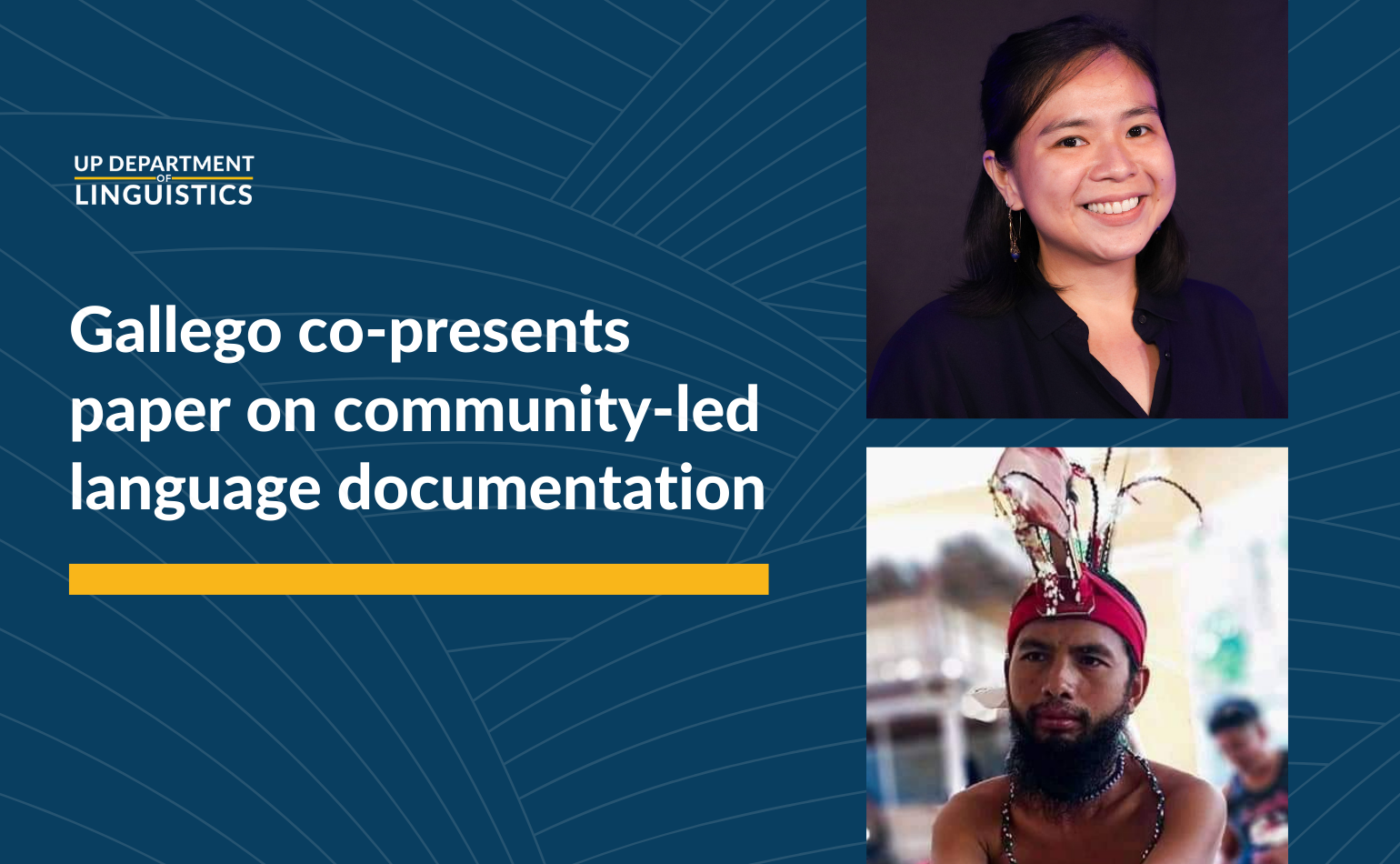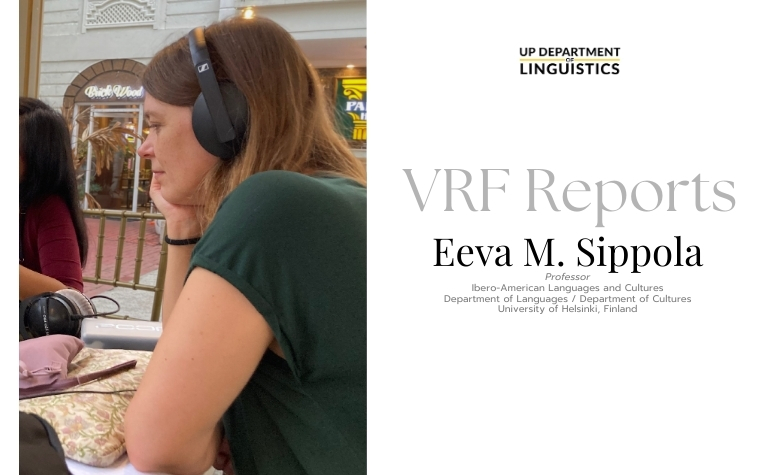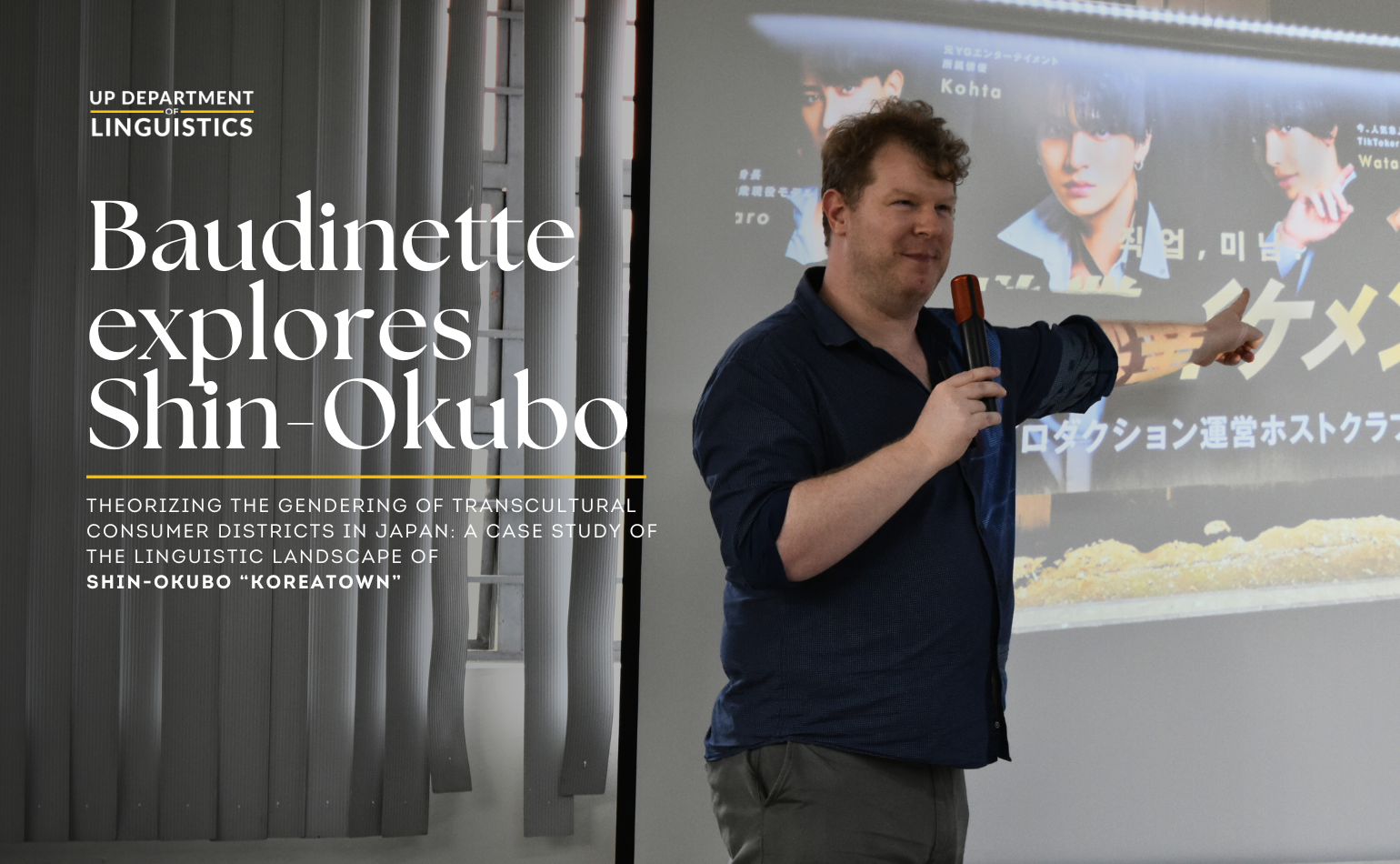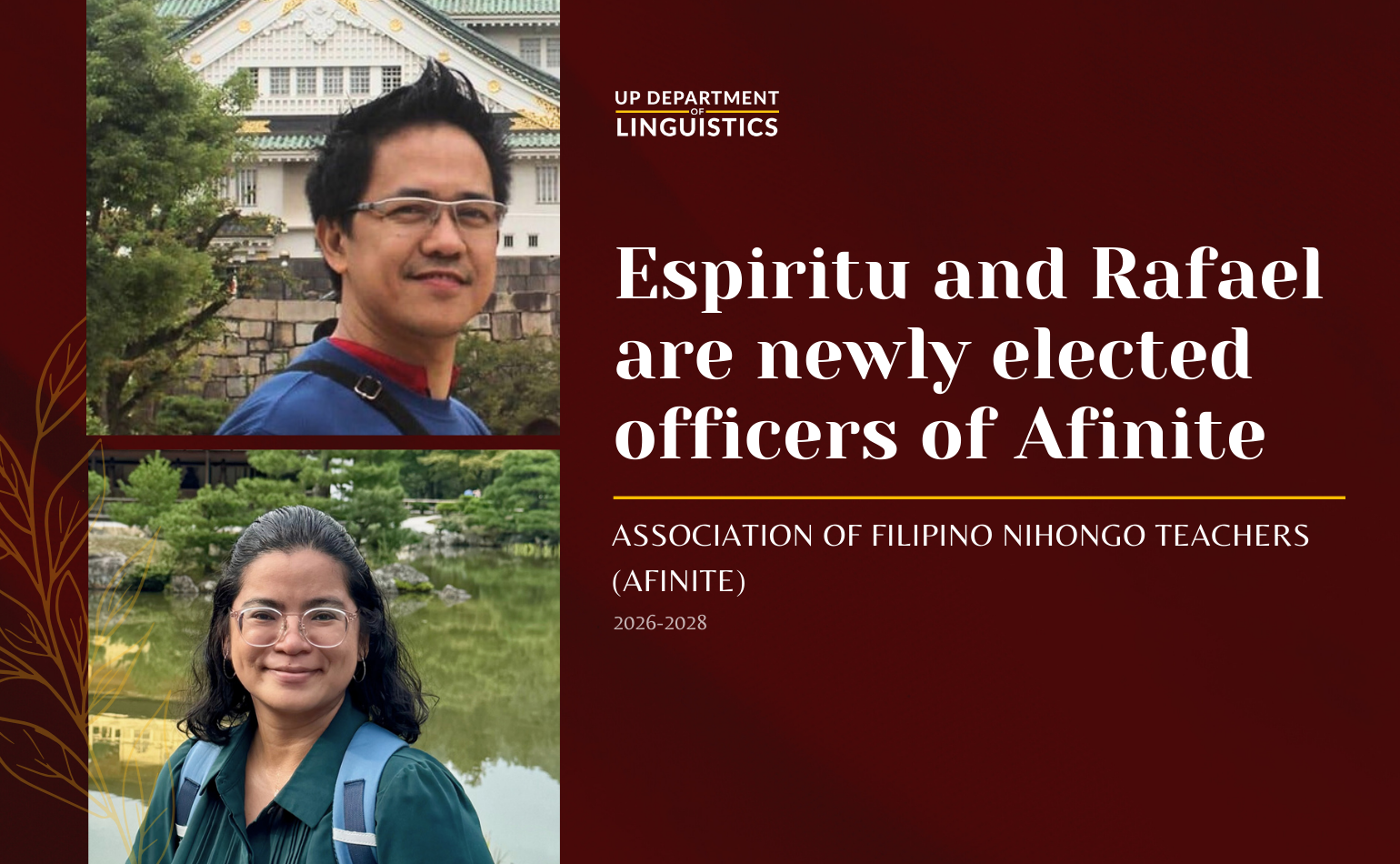
Department Chair Kristina Gallego co-presented the paper, “Developing a community-led documentation project for Bugkalot/Eg̓ongot,” with culture bearer and translator Frederick Barcelo at the 2024 Language Documentation and Archiving (LD&A) Conference last 05 September (PHT; online). The paper “reflects on the learnings and insights coming out of a community-led documentation project for Bugkalot/Eg̓ongot” and “highlights the importance of maintaining a good and lasting relationship with the community to ensure the sustainability of language documentation.”
Below is their abstract:
Developing a community-led documentation project for Bugkalot/Eg̓ongot
Bugkalot (also known as Eg̓ongot) is a language used by around 5,710 speakers, mainly in the provinces of Nueva Vizcaya, Quirino, Aurora, and Nueva Ecija, Philippines. It is rated as an endangered language by Ethnologue, which means that the younger generations are not learning or using the language (Eberhard, Simons, and Fennig 2024).
This paper reflects on the learnings and insights coming out of a community-led documentation project for Bugkalot. The collaboration between the community and the Department of Linguistics, University of the Philippines Diliman (UP Lingg) began in the 1960s, when UP Lingg conducted field research in a Bugkalot community in Nueva Vizcaya, which focused on gathering basic linguistic data and various oral traditions. In 2009, an undergraduate field methods class of UP Lingg visited the same province to conduct another (unrelated) fieldwork, which produced a sociolinguistic survey and a grammar sketch of the language.
In 2023, Frederick Barcelo, a Bugkalot culture bearer who worked with UP Lingg during the mentioned 2009 fieldwork, reached out to the Department to propose a language documentation project for Bugkalot. The current project is thus a product of a decades-long relationship with the community. While the previous partnerships saw linguists taking the primary role, this current project places the community at the helm of the documentation project. Other significant aspects of the project include the repatriation of legacy materials collected since the 1960s, and capacity-building activities focused on language documentation, orthography development, lexicography, and linguistic analysis.
This paper highlights the importance of maintaining a good and lasting relationship with the community to ensure the sustainability of language documentation. We also emphasize the need for employing best practices in language documentation, such as maintaining metadata and ensuring proper data storage through archiving, in order to be more accountable in our engagements with the community.
Barcelo has collaborated with UP Lingg in 2009 during a Lingg 125 class, in 2023 during a Lingg 225 class, and during several Bugkalot/Eg̓ongot orthography workshops with the Komisyon sa Wikang Filipino (KWF) and the Translators Association of the Philippines (TAP). He has also worked with the Department in the first and second phases of the extension project, “Developing a Community-Based Documentation Project for Bugkalot.” This paper is an output of this project.
Barcelo and Gallego were also both in the plenary panel, “What can linguists learn from language users in documenting a language? The experiences of northern Philippine language communities” at the recently-concluded 16th International Conference on Austronesian Linguistics (ICAL).
For more information, you may visit the conference website at <https://langdoc.org>.
Published by UP Department of Linguistics



